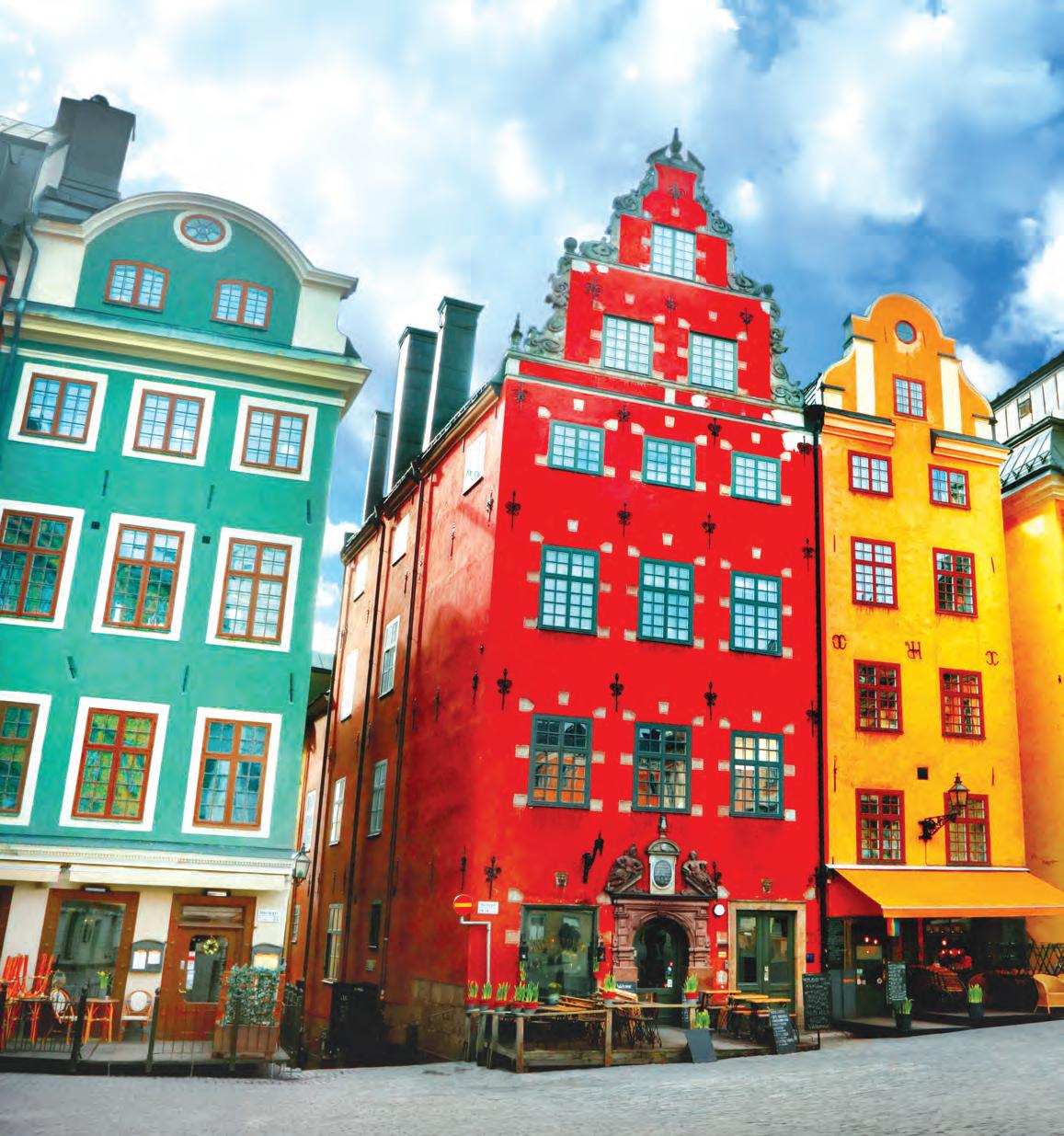
4 minute read
Sweden - A Fintech Mecca
Sweden’s future is digital. The jet engine of the Nordic tech scene, the Swedish start-up landscape has always been outstanding, and it is rapidly emerging as one of Europe’s top competitors to the US’s Silicon Valley. The inspiring growth is due to world-famous technology education, a sincere drive for work-life balance and the necessary resources to build global companies. Swedes are an incredibly technophilic society. The successes of Skype, Spotify and King have paved the road for a thriving start-up ecosystem and a culture that is highly attractive to aspiring entrepreneurs. The 2021 edition of the yearly Stockholm Fintech Guide showcases a flourishing market, with a growing presence of green fintechs. The Guide, produced by Invest Stockholm, offers a synopsis of the financial landscape in Stockholm. This year’s guide states that the capital is not only a central hub in Sweden, but also throughout the Nordics.
Stockholm-based companies account for nearly 85% of all fintech investment deals in the Nordics, and 90% of the Swedish ones. Quick to adapt to new financial technologies, Sweden is set to become the first cashless economy in the world. This innovative country offers more than just IKEA, H&M and Volvo. Since 1990, the nation has reinvented itself into a state-of-the-art technology hotbed. Apart from the technological developments and economic stability, Sweden also offers companies relatively easy access to the government authorities. Home to one of the largest and bestknown tech ecosystems in Europe, Sweden is a fintech powerhouse, counting nearly 400 companies that use technology and digital platforms to support, enable or innovate banking and financial services. The linchpin of Sweden’s fintech triumph lies with its incumbents. These unusually forward-thinking banks and other financial institutions have simply refused to accept legacy systems and are driven by innovation. The country had a rapid rise as one of the most substantial and significant European technology hubs – home to more billion-dollar startups per capita than anywhere in the world outside Silicon Valley. Between 2015 and 2019, approximately 800 start-ups raised funding in Stockholm, a capital of fewer than a million people. Sweden’s fintech ecosystem has gone from strength to strength over the years, and according to a study by TechEU, Sweden ranks third, only behind the UK and Germany, when it comes to fintech investments. Almost two in every three-fintech investments in the Nordics in the past two years were made in Sweden. The ecosystem’s origins can be tracked back to the launch of niche banks such as Nordnet, Avanza, Collector and Resurs in the early noughties. Spotify, Skype and iZettle are all examples of successful digital ventures to come out of the country. The Swedish corporation Klarna is the largest fintech -company in Europe to get a banking licence and it is also the highest valued private fintech company in Europe, raising $1 billion in equity funding for international expansion in March 2021. This has paved the way for other fintechs. And more are certainly on the way. Introducing Gothenburg’s Juni. Barely 12 months old, it’s already gone global and has investors scrambling for a piece of the action. Founded in 2020, Juni was created to address the shortcomings of traditional banking services that represent a hurdle for many e-commerce and online marketing entrepreneurs. The banking app provides a centralized overview of all your bank accounts, networks and payment services, as well as debit card, cash flow management, invoice and bank statement matching, and liquidity management. The financial companion for eCommerce entrepreneurs, has secured $52M in funding led by EQT Ventures, with participation from FJ Labs and other existing investors to add to the $21M already raised from their Series-A round in late June this year. Sweden has an ever-growing pipeline of newcomers, including ‘smart economy’ app Anyfin and open banking platform Minna Technologies. The country’s fintech ecosystem was always ahead of the game. Rather than turning to digital ways of payment because of the pandemic, Sweden’s leading position as a cashless society gave them a head start. This cutting-edge outlook has enabled Stockholm to present itself as an attractive destination for companies and start-ups looking to regain a foothold in the Eurozone. Although the COVID-19 crisis has been a time of significant financial turmoil, it has also presented opportunities in the field of e-commerce, and cross-border consumerism has grown significantly over the past 18 months - with both B2B and B2C firms enjoying the benefits of digital transformation. Even in the face of a global pandemic, Sweden’s fintechs successfully raised massive funding rounds in 2020. Klarna, Lendify and Tink all secured cash injections worth hundreds of millions last year. The crisis has undoubtedly had a significant impact on European business, but it has also opened doors in Sweden to exciting fintech platforms and digital transformations that will help accelerate a return to normal. Through embracing new technologies, businesses across Europe and beyond could be set for a bright, efficient, and borderless future. And Sweden is leading the way.
Advertisement










